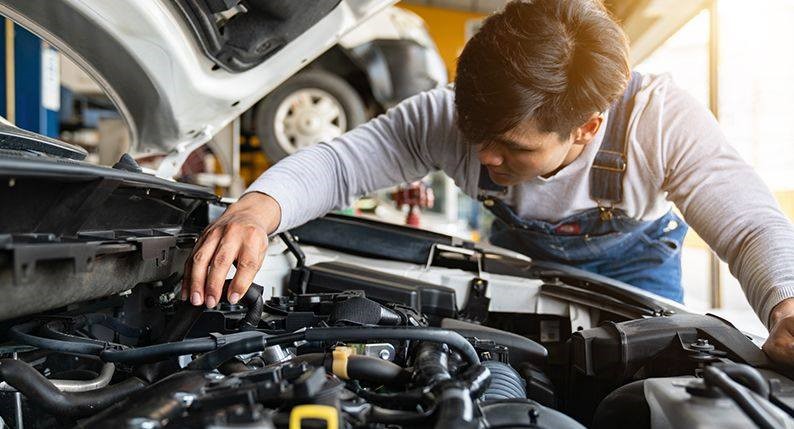All Categories
Featured
The increase of electrical vehicles (EVs) has brought around substantial improvements in sustainable transport, yet it additionally offers an expanding issue: what happens to EV batteries when they are no much longer functional? Repair stores have tipped into this space, offering electric vehicle battery reusing solutions to satisfy the demands of eco-conscious EV owners.
![]()
Environmental Management: Avoiding unsafe chemicals from polluting dirt and water. Source Healing: Removing multiple-use materials like lithium and cobalt to lower the requirement for new mining operations. Power Effectiveness: Recycling uses much less energy than sourcing basic materials, contributing to a lower carbon footprint. As countless EV batteries are expected to reach the end of their lifecycle in the coming decades, the need for recycling remedies has never been higher.
Collection and Safe Storage space: Lots of service center accumulate utilized EV batteries from clients and store them securely up until they can be transferred to reusing centers. Partnerships with Recyclers: Shops often team up with specialized reusing business that extract and repurpose important materials. Repurposing Initiatives: Some batteries, although no more appropriate for vehicles, can be repurposed for stationary energy storage solutions, a solution some repair service stores facilitate. 3. Collaborations with Manufacturers and Recycling Programs. To improve the recycling process, service center commonly partner with EV producers and third-party recyclers. Examples include:
Manufacturer Programs: Brands like Nissan and BMW have implemented battery reusing campaigns, using certified fixing shops to collect and handle used batteries. Third-Party Recyclers: Firms like Redwood Products and Li-Cycle work with independent service center to reuse batteries from numerous EV brand names. These collaborations guarantee that recycling is managed responsibly and efficiently, with marginal environmental influence.
Comfort: Consumers can recycle batteries locally without navigating complex recycling networks. Expense Savings: Some stores use trade-in credit ratings or price cuts on substitute batteries when clients reuse their old ones. Sustainability Assurance: Partnering with trustworthy stores assurances that batteries are recycled in conformity with ecological guidelines. 5. Difficulties in Expanding Recycling Solutions. Despite progression, there are obstacles to making battery recycling universally offered:
Training Demands: Handling EV batteries safely calls for specialized understanding and tools, which not all repair shops have. Price of Recycling: Transporting and refining batteries can be costly, positioning a barrier for smaller shops. Restricted Infrastructure: In some regions, access to recycling facilities is still underdeveloped. Suppliers and federal governments are working to address these problems via motivations, funding, and research into a lot more efficient reusing modern technologies.
![]()
Verdict. Yes, repair work shops supplying electric automobile battery recycling are coming to be an important part of the EV ecological community. By teaming up with producers, recyclers, and ecological programs, these companies are aiding to ensure that the shift to electrical transport is as lasting as possible.
For EV owners, choosing repair service shops with recycling capabilities is not just a sensible decision but likewise a liable one. With each other, repair customers, stores, and suppliers can develop a lasting future where EV batteries are not wasted but repurposed, reused, and reused for the advantage of the earth.

- The Value of Recycling EV Batteries. Unlike standard cars and truck batteries, EV batteries are complex and large, with one-of-a-kind recycling needs. Correct recycling is vital for a number of factors:
Environmental Management: Avoiding unsafe chemicals from polluting dirt and water. Source Healing: Removing multiple-use materials like lithium and cobalt to lower the requirement for new mining operations. Power Effectiveness: Recycling uses much less energy than sourcing basic materials, contributing to a lower carbon footprint. As countless EV batteries are expected to reach the end of their lifecycle in the coming decades, the need for recycling remedies has never been higher.
- How Repair Service Shops Add To Battery Recycling. Service centers play an essential duty in the EV community by providing effective and available recycling options. Right here's exactly how they sustain sustainability:
Collection and Safe Storage space: Lots of service center accumulate utilized EV batteries from clients and store them securely up until they can be transferred to reusing centers. Partnerships with Recyclers: Shops often team up with specialized reusing business that extract and repurpose important materials. Repurposing Initiatives: Some batteries, although no more appropriate for vehicles, can be repurposed for stationary energy storage solutions, a solution some repair service stores facilitate. 3. Collaborations with Manufacturers and Recycling Programs. To improve the recycling process, service center commonly partner with EV producers and third-party recyclers. Examples include:
Manufacturer Programs: Brands like Nissan and BMW have implemented battery reusing campaigns, using certified fixing shops to collect and handle used batteries. Third-Party Recyclers: Firms like Redwood Products and Li-Cycle work with independent service center to reuse batteries from numerous EV brand names. These collaborations guarantee that recycling is managed responsibly and efficiently, with marginal environmental influence.
- Benefits for EV Proprietors. Repair shops using battery recycling services give considerable benefits to EV owners:
Comfort: Consumers can recycle batteries locally without navigating complex recycling networks. Expense Savings: Some stores use trade-in credit ratings or price cuts on substitute batteries when clients reuse their old ones. Sustainability Assurance: Partnering with trustworthy stores assurances that batteries are recycled in conformity with ecological guidelines. 5. Difficulties in Expanding Recycling Solutions. Despite progression, there are obstacles to making battery recycling universally offered:
Training Demands: Handling EV batteries safely calls for specialized understanding and tools, which not all repair shops have. Price of Recycling: Transporting and refining batteries can be costly, positioning a barrier for smaller shops. Restricted Infrastructure: In some regions, access to recycling facilities is still underdeveloped. Suppliers and federal governments are working to address these problems via motivations, funding, and research into a lot more efficient reusing modern technologies.

- The Future of EV Battery Recycling. As the EV market continues to expand, the duty of repair service shops in battery recycling will end up being much more vital. Regulative demands are encouraging manufacturers and repair service networks to create extensive recycling systems. Arising innovations are additionally boosting the effectiveness of material healing, making reusing much more widely available and cost-efficient.
Verdict. Yes, repair work shops supplying electric automobile battery recycling are coming to be an important part of the EV ecological community. By teaming up with producers, recyclers, and ecological programs, these companies are aiding to ensure that the shift to electrical transport is as lasting as possible.
For EV owners, choosing repair service shops with recycling capabilities is not just a sensible decision but likewise a liable one. With each other, repair customers, stores, and suppliers can develop a lasting future where EV batteries are not wasted but repurposed, reused, and reused for the advantage of the earth.
Latest Posts
Untitled
Published Jan 04, 25
0 min read
Flat Roofs for Your Business: Benefits, Challenges, and Installation Advice
Published Jan 03, 25
1 min read
Commercial Energy-Efficient Roofing: Save on Costs and Help the Environment
Published Jan 03, 25
1 min read